Trump’s Anti-War Charade Deserves a Challenge
It’s a grave mistake for Democrats to let Trump be the only voice expressing revulsion at militarism.
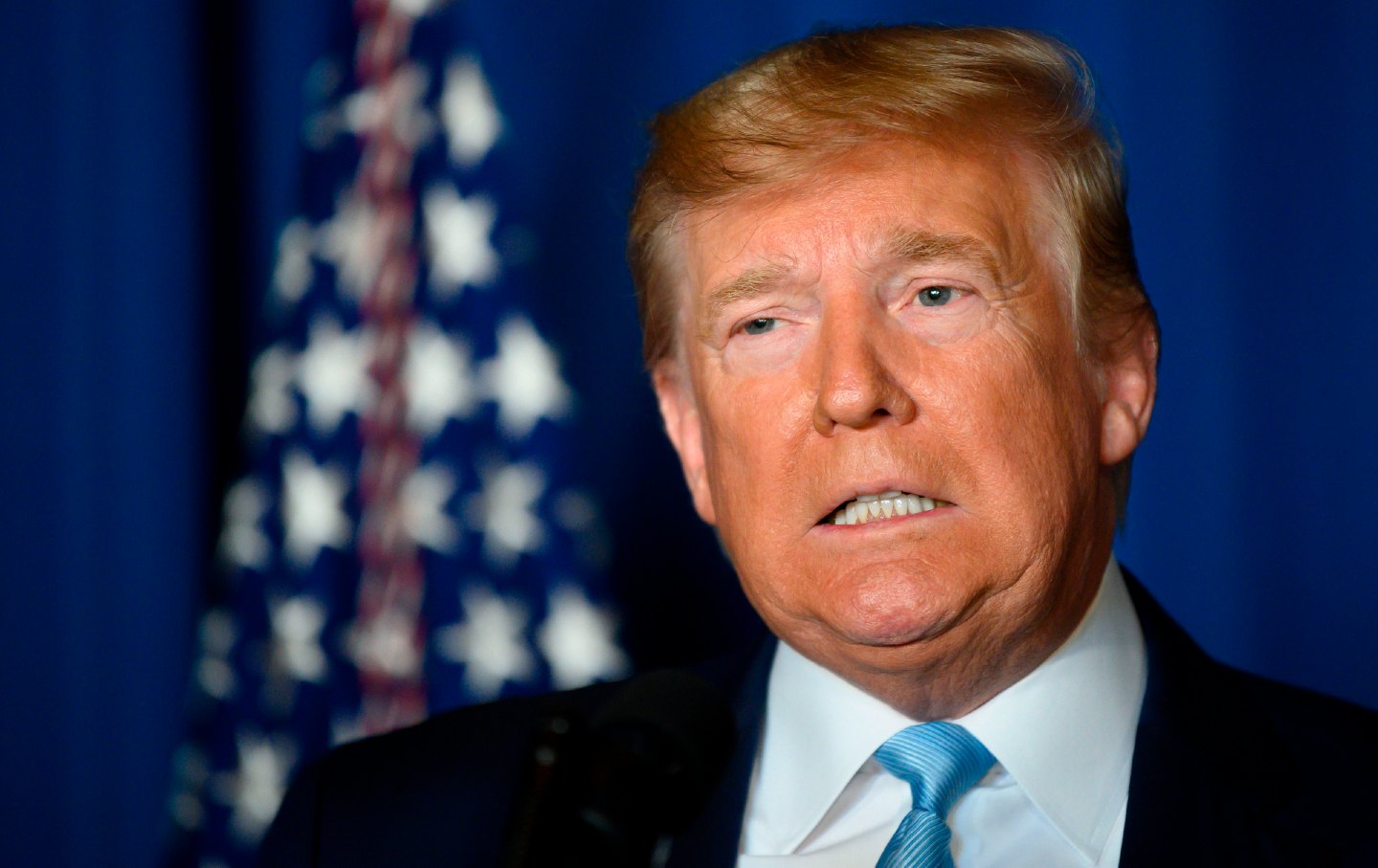
Back in 2016, JD Vance thought that Donald Trump might well be “America’s Hitler,” but that didn’t prevent him from realizing that Trump’s political success, like the German dictator’s, was based on capitalizing on grievances widely held by the population. In a remarkable New York Times op-ed published on April 4, 2016, Vance provocatively argued that “Trump’s anti-war message resonates with white America.” Vance’s insight then prefigures the current election, where Trump and Vance are a team united in part by a strategy that uses anti-war rhetoric to appeal to working-class whites by painting the Democrats as beholden to a militaristic establishment. With this strategy, Trump and Vance hope to replicate the victory Trump won in 2016. One reason to fear that Trump’s gambit will succeed is the fecklessness of the Democrats in not answering this cynical ploy.
Drawing on his experiences as the child of a poor white family, Vance in his 2016 column noted that George W. Bush’s foreign policy was deeply unpopular with the working class—and that Trump was the only Republican willing to challenge elite warmongering.
Vance argued:
Mr. Trump is unfit for our nation’s highest office. But to those humiliated by defeat, he promises we’ll win again. To those discouraged by a government unable to care for the people it sent to war, he promises to take care of our veterans. To those voters furious at politicians who sent their children to fight and bleed and die in Iraq, he tells them what no major Republican politician in a decade has said—that the war was a terrible mistake imposed on the country by an incompetent president.
To be sure, Trump was not a conventional anti-war candidate. His message was a variation of the “peace through strength” ideology of the right, plus Richard Nixon’s “madman theory”: a belief that the more other countries fear the retribution of the United States, the less likely war would be. Still, in comparison to the imperial folly of the Bush/Cheney attempt to use the US military to remake the Middle East, Trump came across as a beacon of reasonableness.
Vance’s exceptionally clear-sighted analysis applied not just to the primaries but also helps explain Trump’s victory in the general election. In criticizing Trump’s foreign policy, Hillary Clinton, in her major foreign policy address on June 2, 2016, used language of hawkishness and American exceptionalism that was more typical of the neoconservatives who advised George W. Bush than it was of Barack Obama.
As it happened, on the same day as Clinton’s address, Obama delivered a speech where he took pride in his legacy of pursuing “diplomacy, not war.” In contrast to Obama’s speech, Clinton pointedly did not cite Obama’s success in opening up to Vietnam and China. She did praise the Iran nuclear deal—but with the proviso that she’d be willing to use force if it were violated. Further, Clinton attacked Trump for being excessively solicitous of the Palestinians, warning that “he’ll stay neutral on Israel’s security.”
On foreign policy, Clinton tried to outflank Trump on the right—a not untypical move for a Democrat. It was reminiscent of John F. Kennedy falsely accusing Republicans in 1960 of creating a missile gap. But Clinton’s hawkish rhetoric misread the spirit of the times. By 2016, as Vance rightly noted, Americans were war-weary and eager for domestic repair, not new crusades. The many Obama-Trump voters among the white working class were partly motivated by Trump’s promise of a break from neoconservative adventurism.
In the last week of the 2024 presidential campaign, it’s become clear that Trump and Vance hope to replicate their success of 2016 by ramping up the anti-war rhetoric. Writing in Responsible Statecraft, Branko Marcetic called attention to a few notable examples. On Twitter, Trump boasted:
During my Administration, we had peace in the Middle East, and we will have peace again very soon! I will fix the problems caused by Kamala Harris and Joe Biden and stop the suffering and destruction in Lebanon. I want to see the Middle East return to real peace, a lasting peace, and we will get it done properly so it doesn’t repeat itself every 5 or 10 years!
Trump has also repeatedly denounced Kamala Harris supporter Liz Cheney as a “war hawk,” although in typical fashion muddled the issue by using rhetoric that could plausibly be seen as a violent threat against her.
On a recent podcast appearance, Vance—always more coherent than Trump—lambasted Joe Biden’s policy on Israel/Palestine by saying:
Even though they say they want to minimize Palestinian civilian casualties, they pursued the pathway that maximizes those casualties. They say that they’re pro-Israel. They’ve pursued the pathway that has prolonged the war as long as possible, which is bad for Israel.
This is a critique that many liberals and even leftists could agree with, although at other times Vance (like Trump) has spoken of giving Israel the support needed to “finish the job.”
As Marcetic notes, Trump and Vance are using anti-war language because that is what many voters, particularly swing voters, want to hear. Marcetic called attention to a recent New York Times article that reported, “The Trump campaign’s research found that up-for-grabs voters were about six times as likely as other battleground-state voters to be motivated by their views of Israel’s war in Gaza.”
It’s ridiculously easy to refute Trump’s claim to be the anti-war candidate. His own record as president is in keeping with the larger trend that started under George W. Bush of the United States being a rogue superpower, ever eager to provoke fights with rivals while disdaining diplomacy (with Barack Obama’s presidency offering only a partial and imperfect respite). As Michael Galant recounted in Responsible Statecraft, Trump escalated bombings in the Middle East, gave a blank check to Saudi Arabia’s aggression in Yemen, withdrew from the Iran nuclear deal, and renewed the arms race with Russia.
As Victoria University of Washington scholar Van Jackson documented in his book On the Brink, Trump’s clownish foreign policy brought the world terrifyingly close in 2017 to a nuclear conflict with North Korea. The worst features of Biden’s foreign policy—the myopic pursuit of a Saudi/Israel defense pact at the expense of resolving the Palestinian issue, and the catering to Benjamin Netanyahu’s extremist demands—were inherited from Trump.
Trump’s anti-war posturing is a cynical charade, but Democrats are not calling it out. Instead, Kamala Harris is following in the footsteps of Hillary Clinton, positioning herself as a hawk committed to the bipartisan support of the national security state, using militaristic rhetoric to appeal to Republicans disenchanted with Trump. At the DNC in August, Harris said, “As commander-in-chief, I will ensure America always has the strongest, most lethal fighting force in the world.”
The danger here goes well beyond the current election. Trump could well lose the election. But he has created a space for anti-war rhetoric in the Republican Party, one that will be continued by his political heirs. Conversely, the ruling faction of the Democratic Party has tied itself to a project of maintaining American hegemony even at the risk of great-power conflict with Russia, China, and Iran. It has pursued this policy even though many ordinary Democrats are instinctively anti-war, and there is supermajority support within the party for reducing military aid to Israel based on human rights concerns.
Popular
“swipe left below to view more authors”Swipe →The greatest long-term danger is brinkmanship leading to a wider war—in the Middle East, in Europe or in Asia—where American troops die in large numbers. If that happens, the Democrats will find that they are cornered as the war party in a country where war is unpopular. Conversely, Trumpist Republicans will be able to claim the mantle of anti-war opposition. This would shatter the Democratic coalition and offer the radical right a much clearer path to power than it has had with Trump, who has never come close to winning the popular vote.
If Trump loses the election, Democrats will have the right to celebrate. But immediately afterward, the party needs to have a serious internal battle over foreign policy. The ruling faction of the party is not only supporting a morally horrifying and escalating conflict in the Middle East. It is also digging its own party’s political grave. Unless the Democrats shift on foreign policy, the danger of a Trumpist revival will not only persist but grow.
Support independent journalism that exposes oligarchs and profiteers
Donald Trump’s cruel and chaotic second term is just getting started. In his first month back in office, Trump and his lackey Elon Musk (or is it the other way around?) have proven that nothing is safe from sacrifice at the altar of unchecked power and riches.
Only robust independent journalism can cut through the noise and offer clear-eyed reporting and analysis based on principle and conscience. That’s what The Nation has done for 160 years and that’s what we’re doing now.
Our independent journalism doesn’t allow injustice to go unnoticed or unchallenged—nor will we abandon hope for a better world. Our writers, editors, and fact-checkers are working relentlessly to keep you informed and empowered when so much of the media fails to do so out of credulity, fear, or fealty.
The Nation has seen unprecedented times before. We draw strength and guidance from our history of principled progressive journalism in times of crisis, and we are committed to continuing this legacy today.
We’re aiming to raise $25,000 during our Spring Fundraising Campaign to ensure that we have the resources to expose the oligarchs and profiteers attempting to loot our republic. Stand for bold independent journalism and donate to support The Nation today.
Onward,
Katrina vanden Heuvel
Editorial Director and Publisher, The Nation
More from
Jeet Heer 
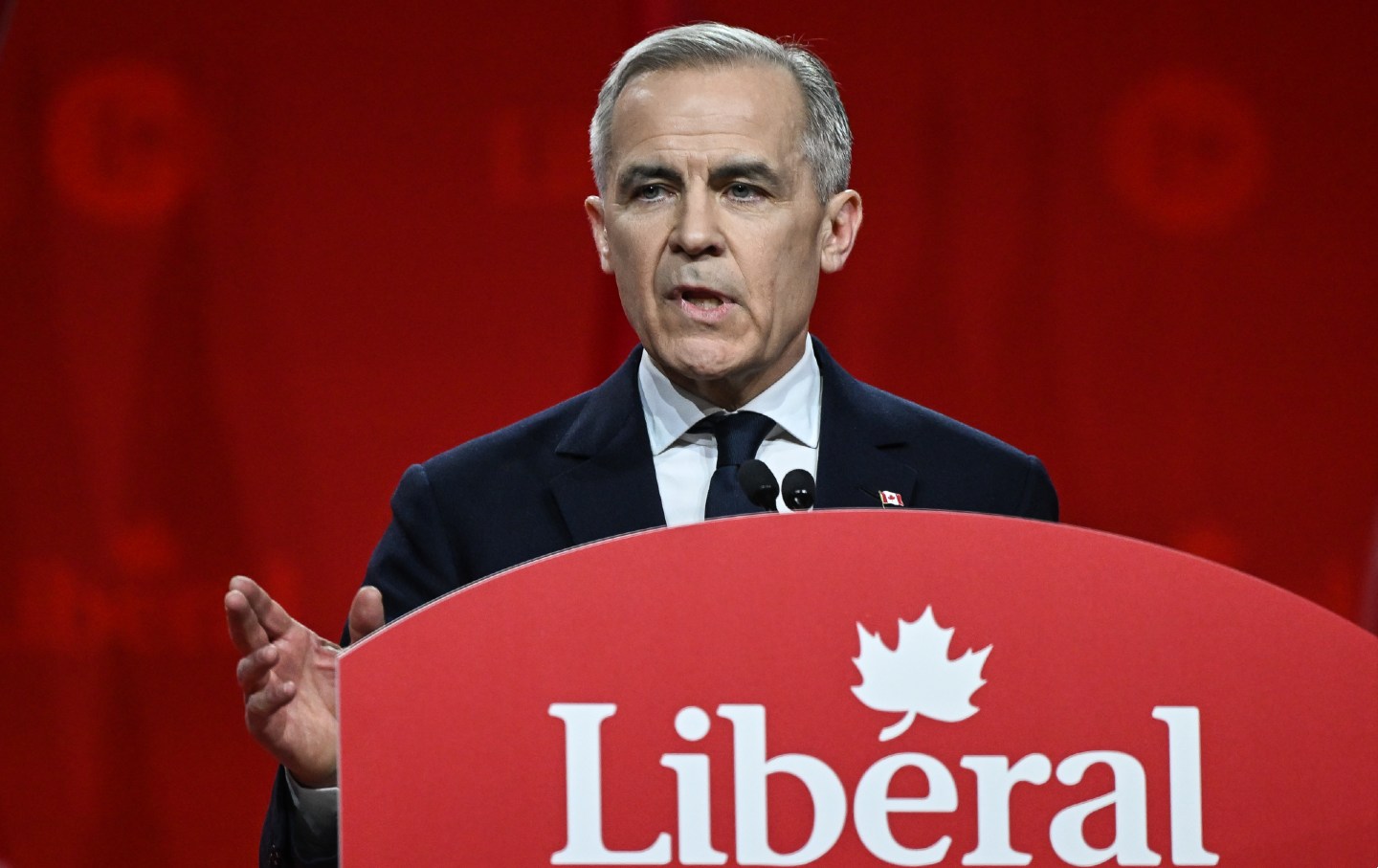
Trump’s Threat to Canada Won’t Be Defeated by Centrist Nostalgia Trump’s Threat to Canada Won’t Be Defeated by Centrist Nostalgia
You can’t fight fascism with cozy memories.
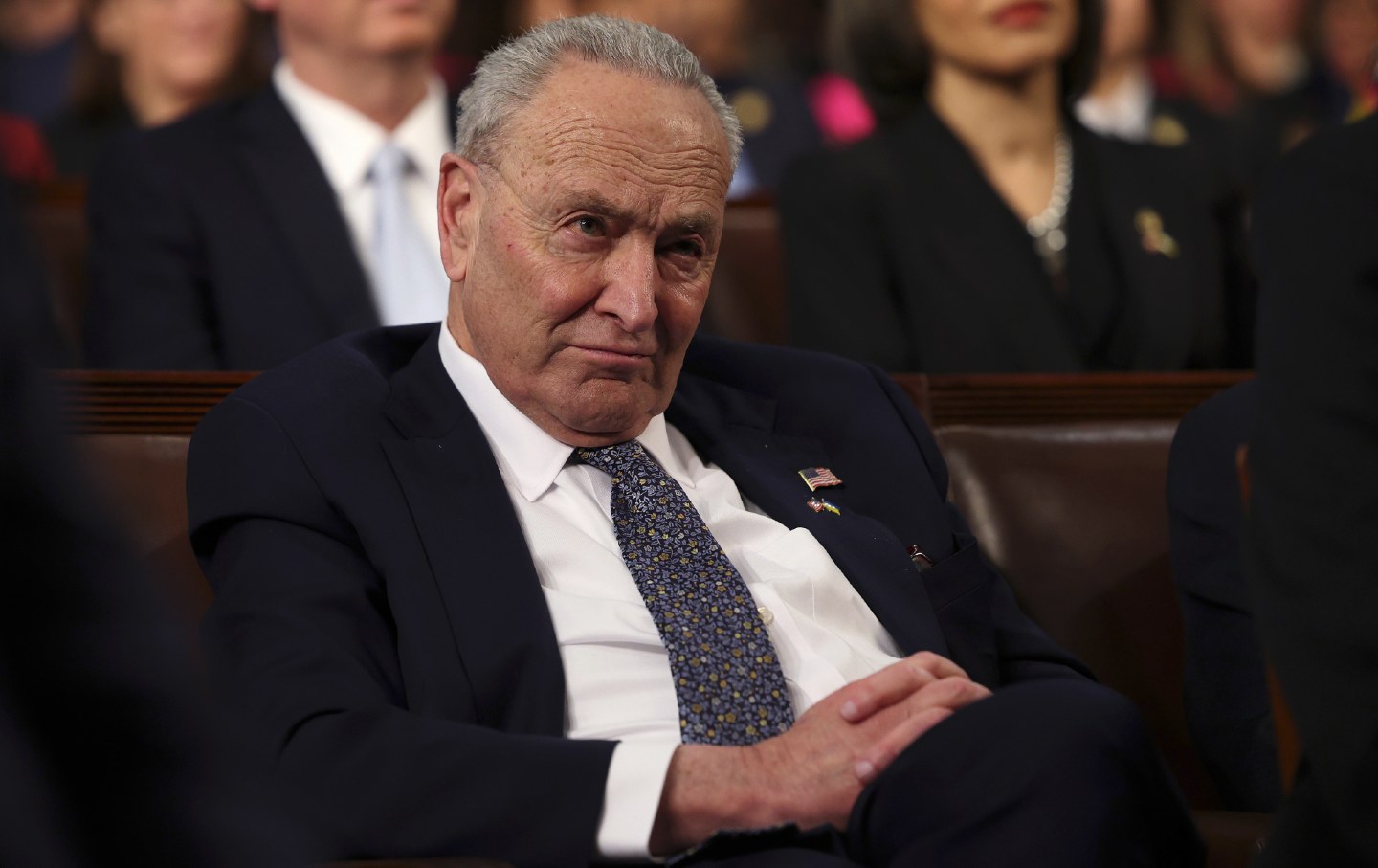
Chuck Schumer Is the Weakest Link Chuck Schumer Is the Weakest Link
The Senate minority leader wants to make sure everyone else is fighting for democracy—so he’s not at risk.
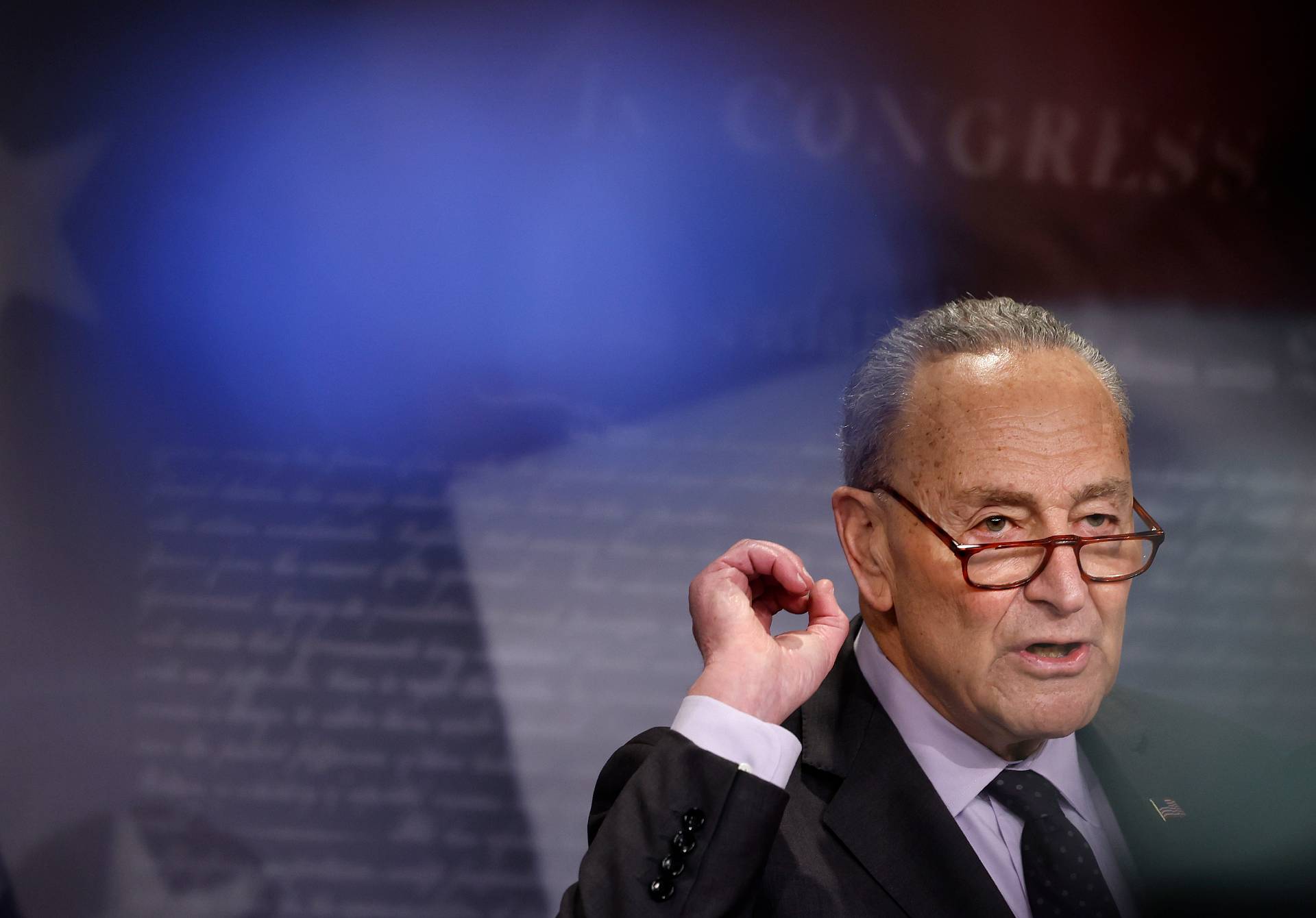
Chuck Schumer Should Resign to Spend More Time With His Imaginary Friends Chuck Schumer Should Resign to Spend More Time With His Imaginary Friends
The bad news is that the Democratic Senate leader isn’t up for reelection until 2028. The good news is that he can resign right now, and should do so—twice.
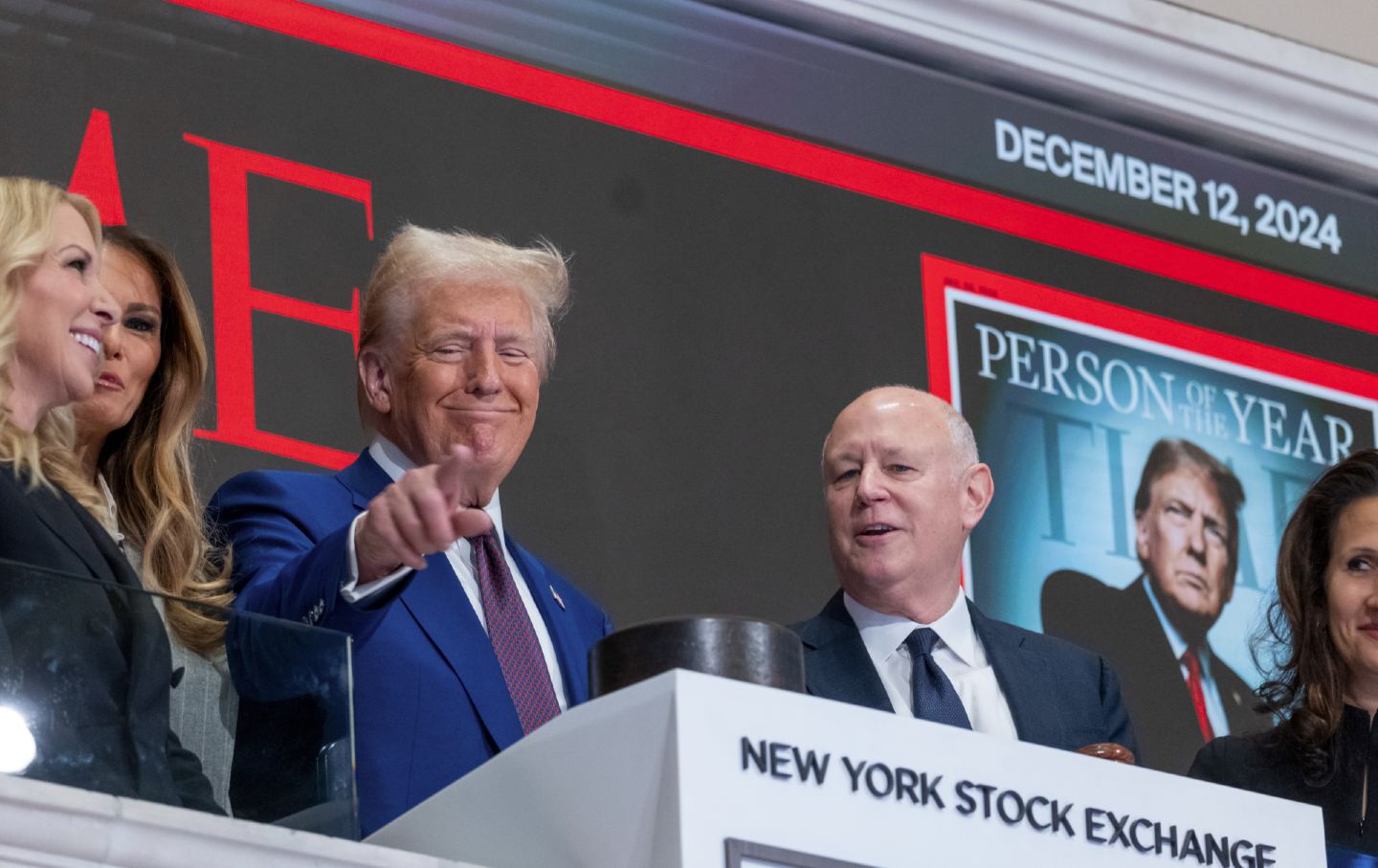
Donald Trump Is Crashing the Economy, but Wall Street Is Afraid to Speak Out Donald Trump Is Crashing the Economy, but Wall Street Is Afraid to Speak Out
Everyone knows Trump is messing up, but fear and greed prevent resistance.
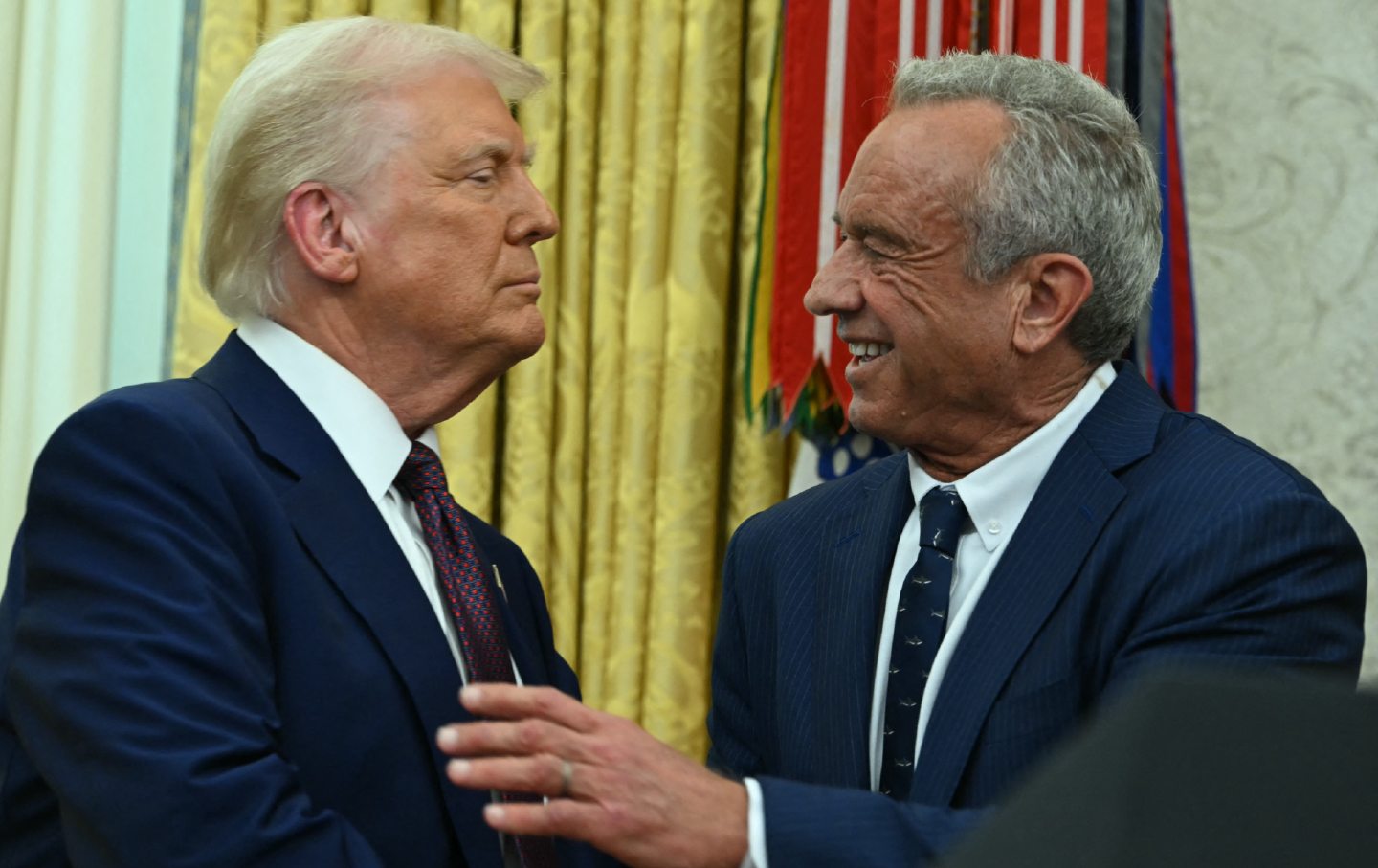
How Covid Sickened the National Psyche How Covid Sickened the National Psyche
While the US was a troubled nation long before the coronavirus, our failure to treat the pandemic as an enduring emergency helped birth this nasty moment.

The Cossacks Work for the Czar—and Musk Works for Trump The Cossacks Work for the Czar—and Musk Works for Trump
The president’s narcissistic management style is at the root of cabinet infighting.


